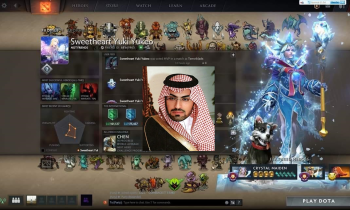Table of Contents
The rapid expansion of the esports realm and its associated industries has piqued the interest of various sectors aiming to tap into its thriving energy. However, connecting with the esports audience presents distinct challenges, distinct from the landscape of online casinos. These differences in demographics and entertainment preferences must be understood for successful engagement and cross-pollination of interests, particularly in the context of online gambling.

The Audience Diversity in Esports
A staggering viewership of over 400 million for esports events in the past year underscores the extensive and varied global esports fanbase. Within this diverse crowd, specific demographic groups exhibit heightened engagement with esports and esports betting. Consequently, operators must acquaint themselves with these groups to forge impactful connections.
Out of the 435 million enthusiasts, a substantial 225 million are categorized as adults, forming the core of the viewership. Within this demographic, those aged between 18 and 24 constitute 38%, the largest percentage. Following suit, the 34-54 age group comprises the second largest share at 26%.
Unsurprisingly, the majority of esports spectators are male. Notably, regions like the UK and the US boast an esports fandom predominantly composed of individuals who meet the legal gambling age requirements. This demographic alignment offers a promising avenue for online casino operators to engage and entice potential customers.
Rich Terrain for Online Casinos
However, the alignment of age alone doesn't directly translate to a surge in online casino engagement among esports fans. The correlation between legal gambling age and esports viewership doesn't guarantee an immediate shift from esports spectating to online casino gaming. Similarly, existing online casino players within the same age bracket might not pause their routine play to bet on the latest Counter-Strike: Global Offensive tournament.
Though disparate in game dynamics, a closer examination reveals the overlap between esports and online casinos. Often, the discussion of cross-selling revolves around sports betting, but such cross-pollination transcends to the casino sphere as well.
Skill remains a pivotal aspect of both esports betting and table games like poker and blackjack, yet the allure of luck plays a part in both skill-based and chance-based games. Furthermore, the shared traits of fast-paced gameplay and the uniqueness of each encounter characterize both esports and online casino endeavors.
A notable confluence emerges in the realm of branded slots inspired by popular video games like Tomb Raider and Call of Duty. This alignment underscores a clear affinity between video games and online casinos, instilling operators with confidence in the interconnected prospects of the two worlds.
Viable Market for Esports Operators
For online casinos to appeal to esports enthusiasts, they must adopt a similar mindset. Prominent esports titles such as League of Legends, Dota 2, and Counter-Strike: Global Offensive demand a high degree of skill mastery.
Expanding their offerings to cater to esports followers, casino operators should consider introducing skill-demanding casino games like blackjack and poker. Beyond enhancing their game repertoire, this strategic move enables casinos to harness marketing opportunities that facilitate visibility within channels where esports aficionados converge.
Leveraging visual content in marketing strategies holds immense potential. Research illuminates that Twitch users consume over 100 million hours of esports content each month. Given the platform's popularity among gaming influencers and YouTubers, this presents a ripe marketing avenue for casino brands. Establishing a presence on Twitch or collaborating with poker professionals who stream their games on YouTube can significantly amplify brand reach.
Converging Worlds for Mutual Gains
Although initially distinct, esports and online casinos reveal an intriguing realm of shared marketing possibilities upon closer inspection. Both domains thrive on fast-paced, skill-oriented pursuits, qualities that resonate with their respective audiences.
Cultivating appeal among esports fans may demand innovative strategies. Yet, by offering a modern, seamless entertainment experience, online casinos can bridge the gap between these two virtual realms. As the boundaries blur, both industries stand to reap the rewards of a collaborative approach, fostering a landscape of symbiotic growth.















Comments